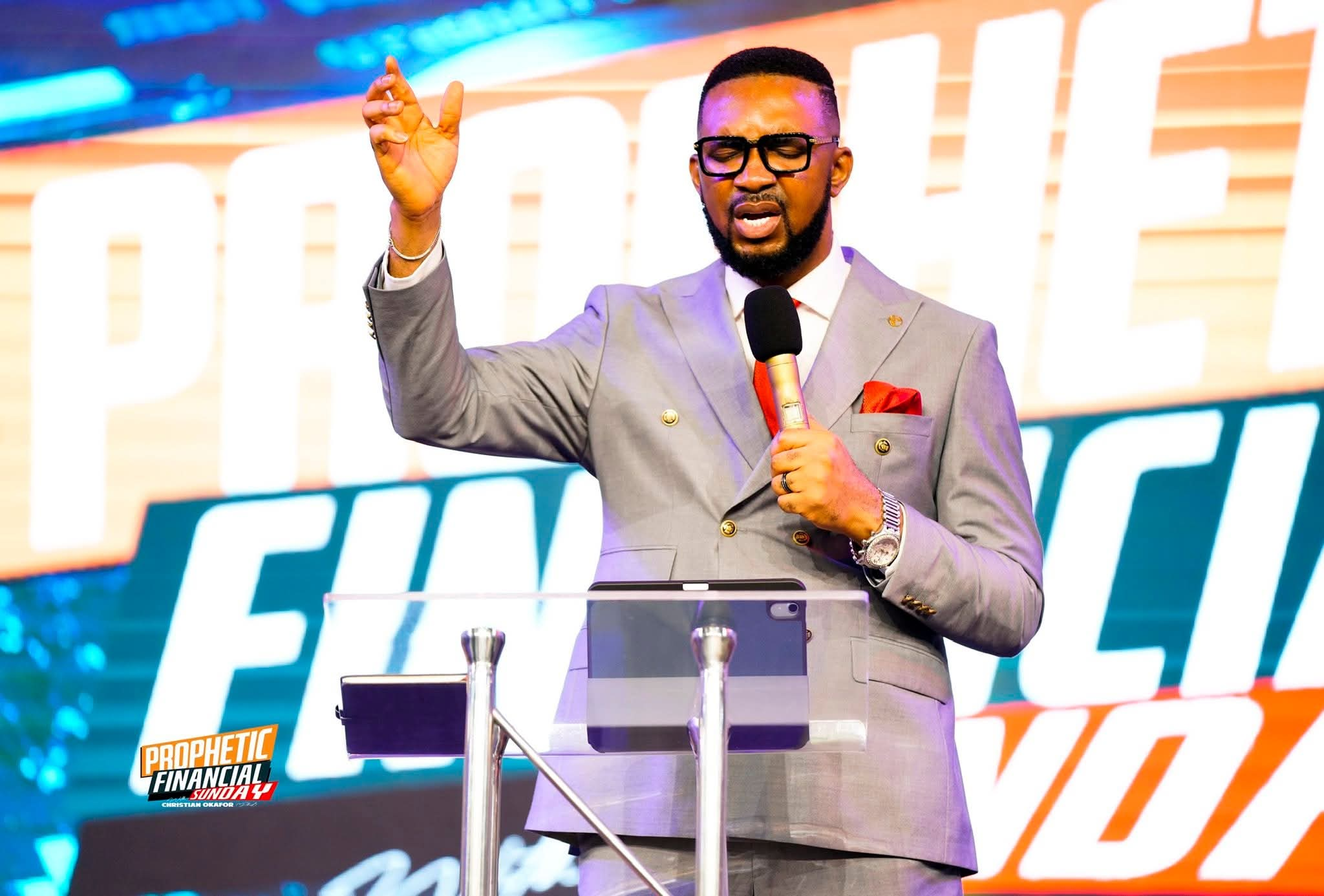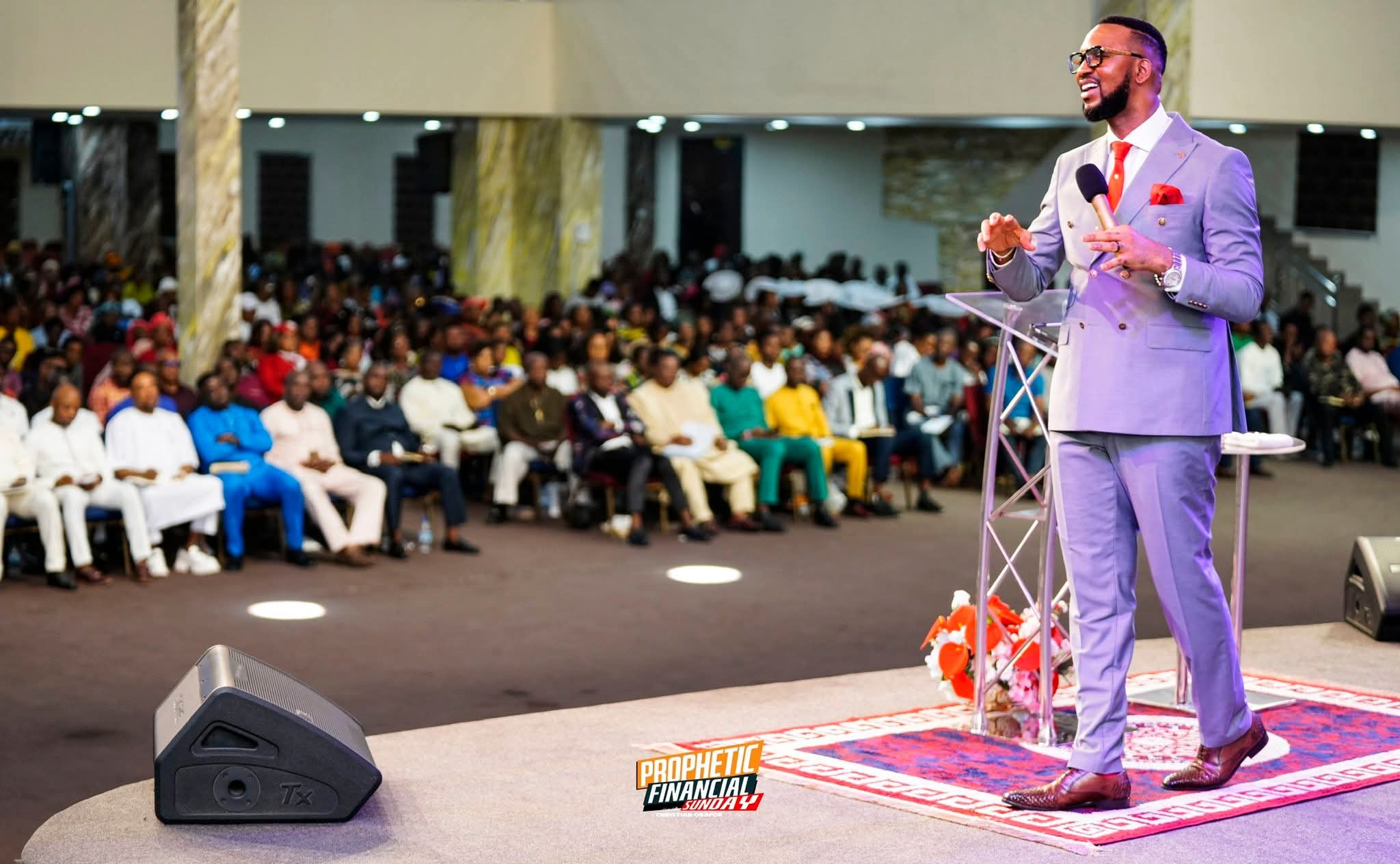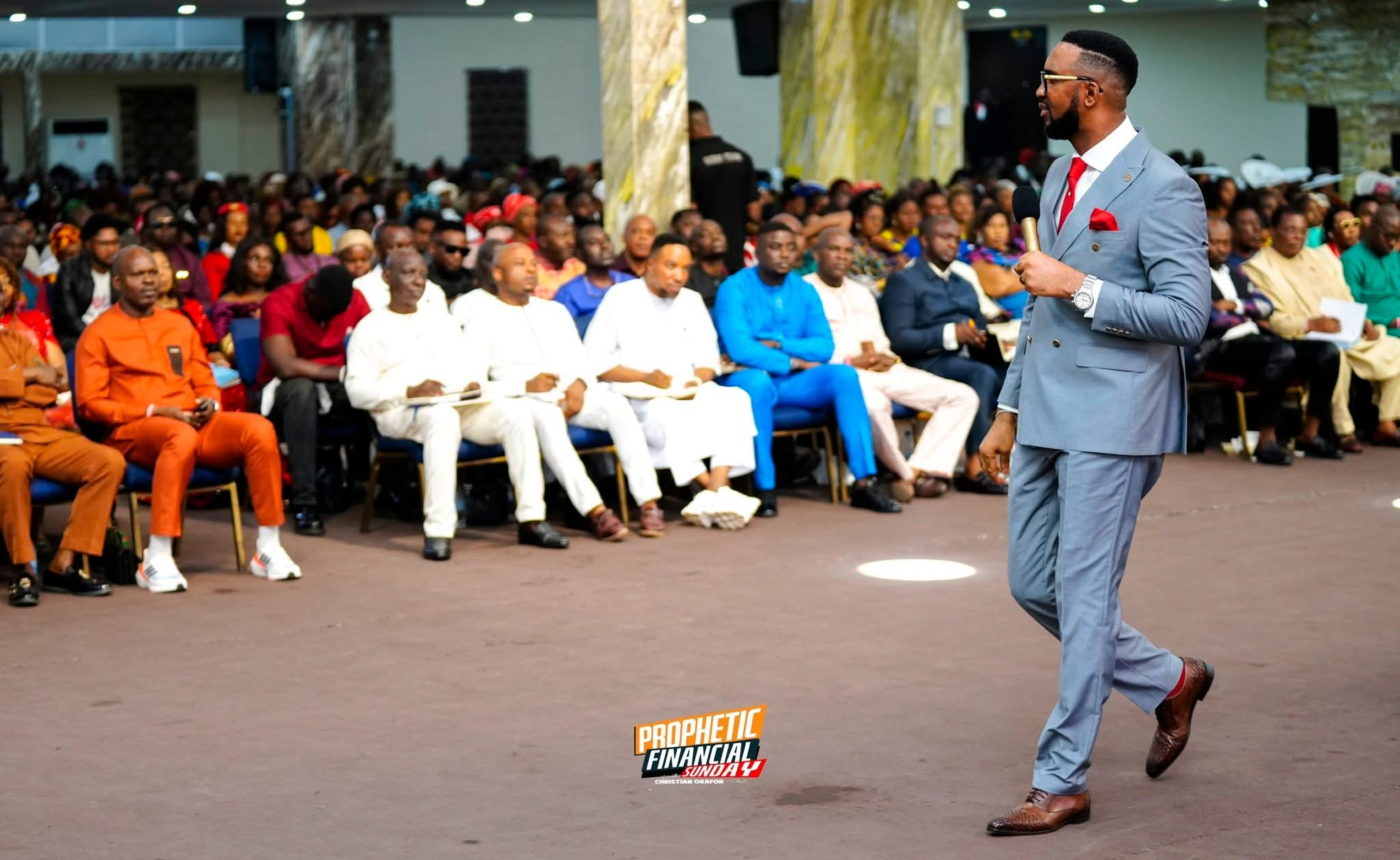celebrity radar - gossips
Governor Obaseki To Shaibu: ‘Emilokan’ Won’t Work In 2024 Edo Election
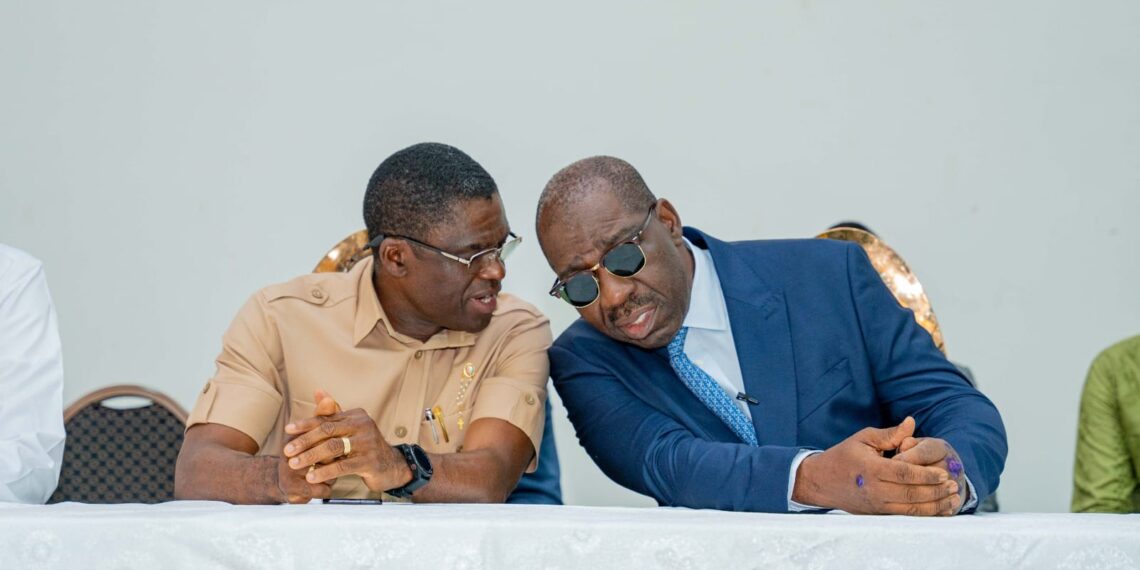
Governor Obaseki To Shaibu: ‘Emilokan’ Won’t Work In 2024 Edo Election
OBASEKI: Emilokan, a Yoruba word that means “it is my turn”, was made popular by President Bola Tinubu during his campaign for the 2023 election.
The feud between Governor Godwin Obaseki of Edo State and his deputy, Philip Shaibu, has continued to degenerate, with the governor sending an apparent warning to Mr Shaibu that the “emilokan spirit” was unacceptable in the state’s politics.
Emilokan, a Yoruba word that means “it is my turn”, was made popular by President Bola Tinubu during his campaign for the 2023 election.
The ideology behind the word as used then by Mr Tinubu was that he had worked for President Muhammadu Buhari to become the first opposition leader to be elected Nigerian president, and therefore it was his (Tinubu’s) turn to be president after Mr Buhari.
“The ‘Emilokan’ syndrome or spirit is not a strategy for winning elections and ruling Edo people,” the governor of Edo was quoted as saying on Tuesday, according to a statement forwarded to PREMIUM TIMES by Crusoe Osagie, the special assistant on media project to the Edo State Government.
Mr Obaseki made the remarks when the leaders of the Edo South Senatorial District paid a solidarity visit to him in the Government House, Benin.
The governor said the Edo people would not accept “Emilokan” as a strategy.
“They are not known for that. For us, it is the people that will decide,” he said, apparently referring to his deputy, Mr Shaibu, who is said to be nursing the ambition to contest for the 2024 governorship election in the state.
In their days in the All Progressives Congress (APC), during the intense political fights between Mr Obaseki and his erstwhile benefactor, Adams Oshiomhole, Mr Shaibu stood solidly behind Governor Obaseki.
Mr Oshiomhole, who was the APC national chairman then, blocked Mr Obaseki from getting the APC governorship ticket for his reelection bid, forcing him to move to the Peoples Democratic Party (PDP). Mr Shaibu moved with the governor to the PDP, and both of them got a joint ticket and defeated the APC governorship candidate, Ize-Iyamu Osagie, to win the election.
By bringing up the emilokan, Governor Obaseki is probably telling Mr Shaibu not to feel that he is entitled to succeed him.
Mr Shaibu recently asked the court to stop an alleged plot by Governor Obaseki to remove him from office.
The governor, meanwhile, has accused Mr Shaibu of manipulating the youth council election in Edo because of his (Shaibu’s) political ambition.
“What has happened in the last few months is strange, and even if you have ambition, this is not the time to express it. The timetable for the election is not out. You can’t be part of a government and also be the one to destabilise the same government,” the Tuesday statement quoted Mr Obaseki as saying.
“I thought we came together and will leave together and let the people say you have done a great job, and they will now make the decision themselves. They are the ones to say that come rain or sunshine; we must continue.
“You are telling the world one thing and yet doing another. You are loyal to your principal, and yet you are in court with your principal. Everybody has the right to be ambitious but do it the right way.”
‘Making Shaibu visible is not a crime’
Governor Obaseki said people have been blaming him for allowing his deputy to be “visible” in the administration.
“Elevating a Deputy Governor and making him visible is not a crime. But this I did because I want to build institutions rather than individuals. To mistake that and misuse it is really unfortunate, as you have created the impression that the deputy governor should not be given responsibility.
“People are already blaming me now for giving him responsibility and visibility, and it’s my fault. How can it be my fault when you want to groom young people? I believe when young people work with you, give them opportunities and expose them, preparing them for leadership positions in life, praying they don’t abuse the privilege.
“I have no regret for exposing my deputy to power and leadership position. I have not made any mistakes, but he is the one that made the mistake. I hope he retraces his steps. He is the one that took me to court; he should be the one to talk to, not me. We are determined and focused to finish well, and with your support, we are sure to finish well,” the governor said.
Shaibu reacts
The deputy governor has, however, denied the existence of a rift between him and the governor.
According to a recent report by the Vanguard newspaper, Mr Shaibu said he remained loyal to Mr Obaseki and that “political jobbers” were trying to create a problem between him and the governor.
“Governor Obaseki and myself are committed to the continued development of Edo State.
“We are united in our determination to build a prosperous and inclusive society. I call on all well-meaning individuals to reject these divisive narratives and join in the quest to transform Edo State into a model of sustainable development and good governance. Edo State PDP politicians should embrace peace and seek unity to fight the common enemy,” Mr Shaibu was quoted as saying.
celebrity radar - gossips
Kingdom Advancement: God Does Not Confirm Lies or Gossip — He Confirms His Word .” — Dr. Chris Okafor
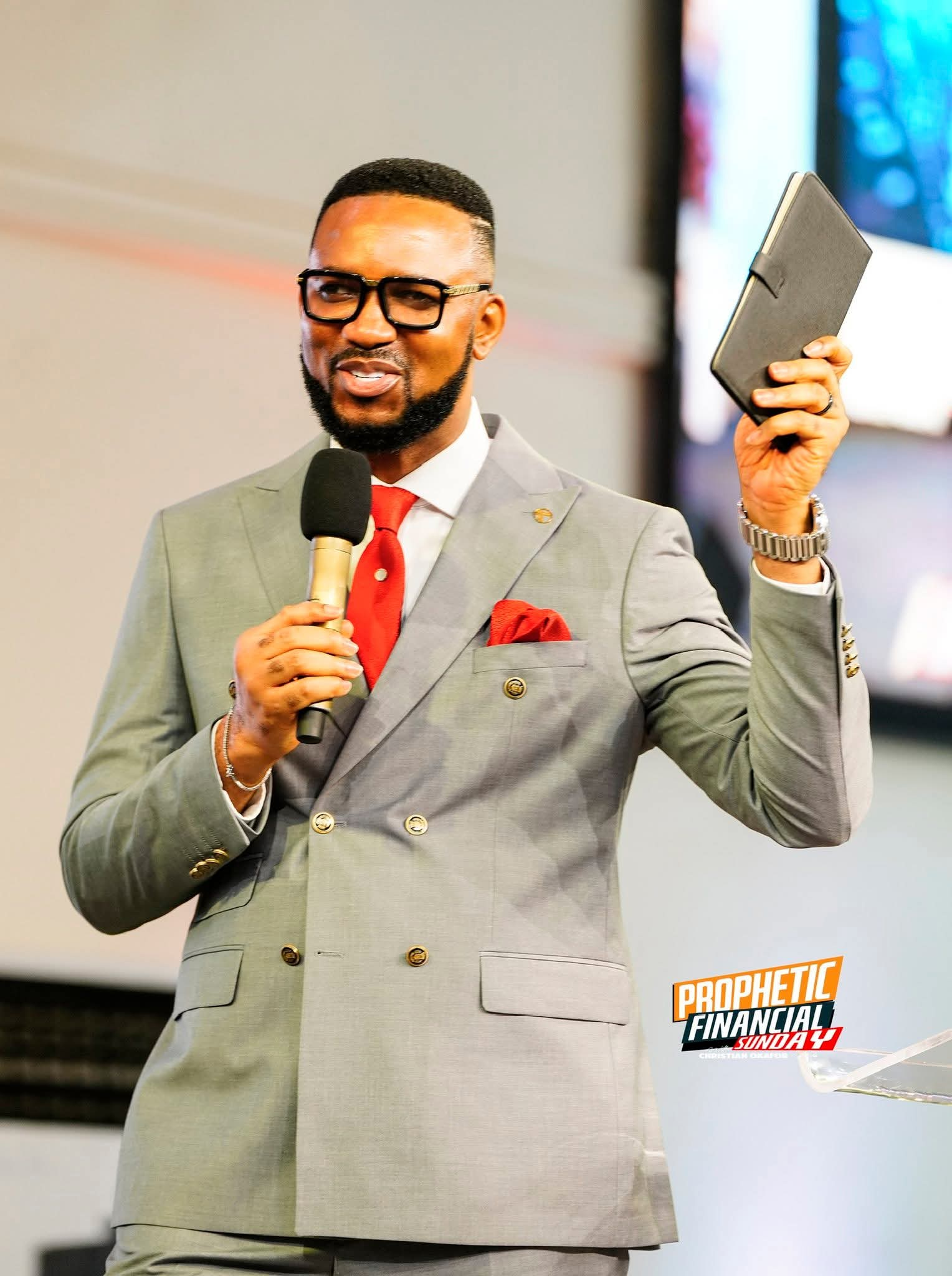
Kingdom Advancement: God Does Not Confirm Lies or Gossip—He Confirms His Word
“When Doing Business with God,
People’s Opinions Do Not Count.”
— Dr. Christian Okafor
The greatest investment any Christian can make is partnering with God. According to the Generational Prophet of God and Senior Pastor of Grace Nation Global, Christopher Okafor, when a believer commits to serving and advancing God’s kingdom, no barrier, lie, gossip, or blackmail can prevail against them.
This message was delivered during the Prophetic Financial Sunday Service held on February 15, 2026, at the international headquarters of Grace Nation Worldwide in Ojodu Berger, Lagos, Nigeria.
Doing Business with God
Teaching on the theme “Kingdom Advancement” with the subtitle “Doing Business with God,” Dr. Okafor emphasized that when a believer enters into covenant partnership with God, divine backing becomes inevitable.
“God is still in the business of covenant,” he declared. “When you make a covenant with Him, He honors the terms. When you win souls into the kingdom and remain committed to His work, He rewards you with what you could never achieve by your own strength.”
The Man of God stressed that God does not confirm lies, gossip, or negative narratives—He confirms His Word. Therefore, anyone genuinely committed to kingdom business should not be distracted by public opinion.
“No matter the blackmail or falsehood circulating around you, if you are focused on God’s assignment, those attacks will only strengthen you,” he stated.
He further noted that a believer’s understanding of God’s covenant determines their experience. “Your mentality about God’s covenant becomes your reality. When you truly know the God you serve, no devil can move you.”
Biblical Examples of Kingdom Partnership
Dr. Okafor cited several biblical figures who prospered through their partnership with God:
Abel
Abel served God with sincerity and offered his very best. His sacrifice pleased God, demonstrating that when a master is honored, he responds with favor.
David
David’s heart was fully devoted to God, and in return, God’s presence and favor rested upon him throughout his life.
Hannah
Hannah made a covenant with God, promising that if He blessed her with a child, she would dedicate him to His service. After fulfilling her vow, God rewarded her abundantly, blessing her with additional children.
Peter
Peter, a professional fisherman, surrendered his boat at Jesus’ request for kingdom work. Through that act of partnership and obedience, he experienced supernatural provision and divine elevation.
Conclusion
In closing, Dr. Okafor emphasized that one’s approach to God’s covenant determines the level of success and prosperity experienced. Commitment to kingdom advancement secures divine confirmation and supernatural results.
The Prophetic Financial Sunday Service was marked by prophetic declarations, deliverance, healings, miracles, restoration, and solutions to diverse cases presented before Elohim.
celebrity radar - gossips
At 55, Omoyele Sowore Remains a Defiant Voice of Conscience
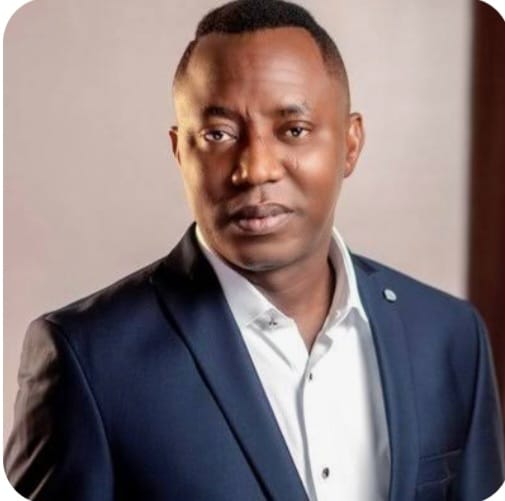
At 55, Omoyele Sowore Remains a Defiant Voice of Conscience
By George Omagbemi Sylvester | Published by SaharaWeeklyNG
“SaharaWeeklyNG Management and Staff Salute a Relentless Campaigner for Justice and Democratic Accountability.”
As activist, journalist and politician Omoyele Sowore marks his 55th birthday, the management and staff of SaharaWeeklyNG join millions of Nigerians at home and in the diaspora to celebrate a man widely regarded as one of the most persistent and fearless voices for democratic accountability in modern Nigeria.
Born on February 16, 1971, in Ondo State, Sowore rose from student activism at the University of Lagos to become one of the country’s most recognisable pro-democracy figures. His early involvement in the student movement during the military era of the 1990s placed him at the forefront of protests against dictatorship and repression, a role that would shape the course of his life and career.
He later founded Sahara Reporters in 2006, an online investigative platform that quickly gained prominence for exposing corruption, abuse of power and human rights violations. Operating initially from the United States, the outlet became a symbol of citizen journalism and digital activism, publishing stories often ignored or suppressed by mainstream media. Over the years, the platform has reported on high-level corruption cases, electoral malpractices and security failures, earning both praise and fierce criticism from political authorities.
Sowore’s activism took a dramatic turn in 2019 when he contested Nigeria’s presidential election under the African Action Congress (AAC). Although he did not win, the campaign amplified his calls for systemic reform. Months later, he launched the #RevolutionNow movement, a nationwide protest demanding an end to corruption, economic hardship and insecurity.
In August 2019, he was arrested by Nigeria’s Department of State Services (DSS) on charges of treasonable felony. His detention, which lasted several months despite court orders for his release, sparked international condemnation from human rights groups, civil society organisations and foreign observers. The case turned him into a global symbol of resistance against state repression.
Over the years, Sowore has faced multiple arrests, court trials and travel restrictions. Yet he has remained resolute, insisting that his activism is rooted in the constitutional right to freedom of expression and peaceful assembly. Supporters describe him as a principled crusader against injustice, while critics accuse him of political extremism. Regardless of the perspective, his impact on Nigeria’s political discourse is undeniable.
His life’s work echoes the enduring words of Nelson Mandela, who once said, “Freedom is not merely to cast off one’s chains, but to live in a way that respects and enhances the freedom of others.” For many of Sowore’s followers, his sacrifices represent precisely that spirit, an unyielding struggle for a more accountable and equitable society.
Similarly, the philosophy of Martin Luther King Jr. (that “injustice anywhere is a threat to justice everywhere”) resonates deeply with the trajectory of Sowore’s activism. Whether confronting police brutality, electoral irregularities or economic injustice, he has consistently framed his struggle as one for the collective dignity of Nigerians.
Nigerian Nobel laureate Wole Soyinka once observed that “the man dies in all who keep silent in the face of tyranny.” That sentiment captures the essence of Sowore’s public life. For over three decades, he has refused silence, even when it meant imprisonment, harassment and personal sacrifice.
At 55, Sowore’s journey is far from over. He remains active in political advocacy, civil rights campaigns and public commentary, continuing to challenge what he describes as systemic failures in governance and leadership. His career reflects both the promise and the peril of dissent in a fragile democracy; where the line between patriotism and confrontation is often fiercely contested.
On this milestone birthday, SaharaWeeklyNG management and staff recognise Sowore not merely as an individual, but as a symbol of the enduring struggle for transparency, justice, and democratic renewal. His story is one of conviction under pressure, a reminder that the quest for a better society often demands courage, resilience and a willingness to stand alone.
As Nigeria navigates its complex political and economic realities, figures like Sowore continue to shape the national conversation. Whether praised or criticised, his voice remains a constant in the country’s democratic journey; loud, uncompromising and impossible to ignore.
celebrity radar - gossips
Banwo Accuses Alex Otti Administration of Governance by Propaganda
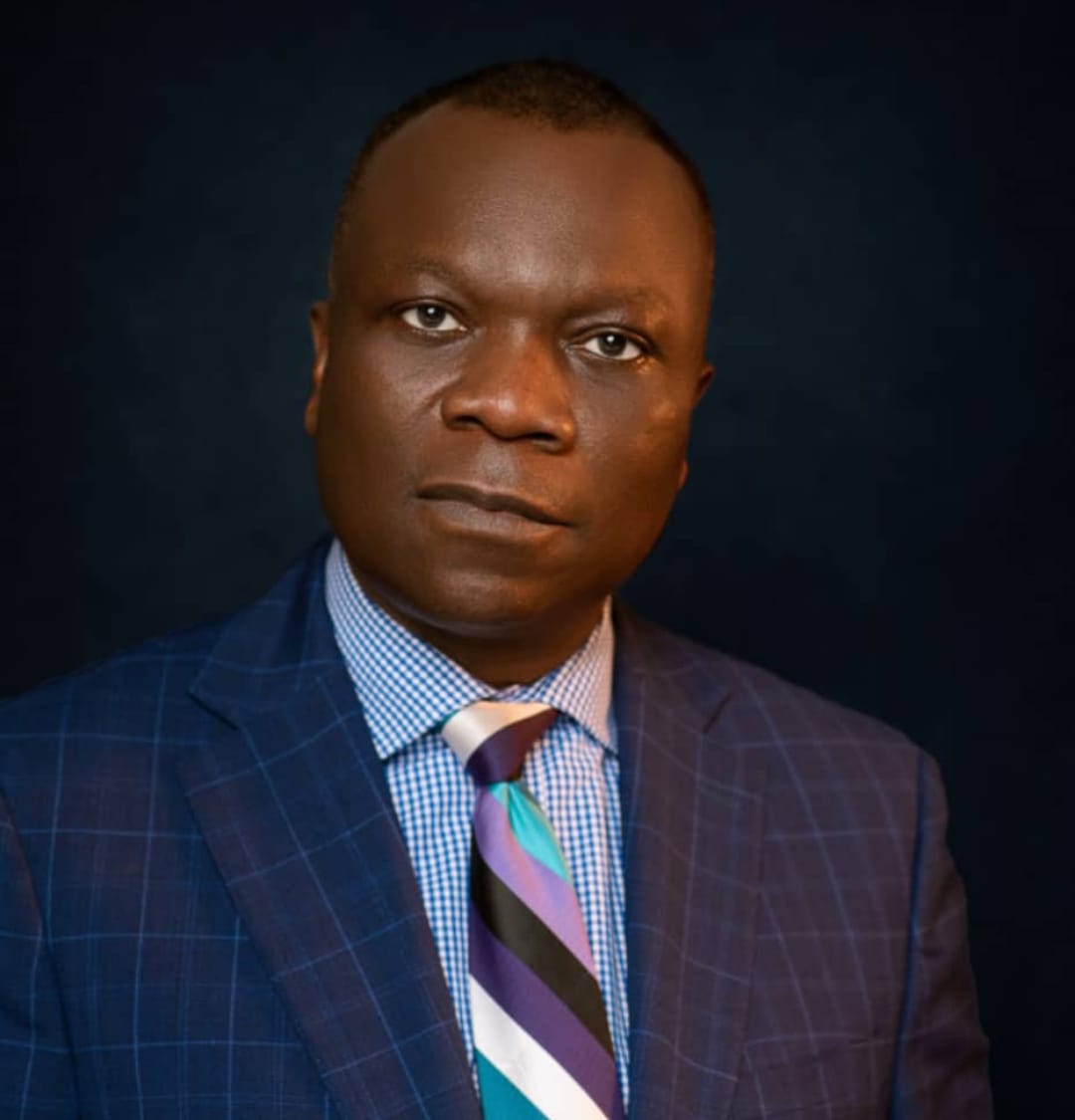
Banwo Accuses Alex Otti Administration of Governance by Propaganda
Public commentator and lawyer Dr. Ope Banwo has criticised the Abia State Government under Governor Alex Otti, accusing the administration of running what he described as a “propaganda-driven government” built on exaggerated claims and selective messaging rather than measurable governance outcomes.
In a detailed commentary, Banwo argued that while Abia State has recorded some progress in specific sectors, the government’s media machinery has inflated limited achievements into what he called “statewide miracles,” creating a disconnect between online narratives and lived realities.
Banwo, who said he initially viewed Governor Otti as a symbol of hope following the 2023 elections, noted that his concerns emerged after engaging residents and professionals living in Abia to verify widely circulated claims about infrastructure, power supply, healthcare, and transportation.
Central to Banwo’s critique is the portrayal of Abia as a state with uninterrupted electricity. He acknowledged the existence of the Aba ring-fenced power arrangement involving Aba Power and Geometric Power but argued that the arrangement has been misrepresented as statewide energy independence.
According to him, extending the Aba power project to represent the entire state amounts to misinformation, especially given acknowledged outages and the limited geographical coverage of the scheme.
He further questioned claims that Abia was the first state to assume intrastate electricity regulation, stating that other states, including Lagos State, had taken similar steps earlier.
Banwo also raised concerns over viral claims suggesting that biogas facilities are already powering Abia communities, arguing that pilot projects have been prematurely presented as fully operational infrastructure.
He noted that residents he spoke with were largely unaware of any functional biogas-powered communities, stressing that government announcements should be backed by publicly available data on scale, output, and sustainability.
On healthcare, the founder of Naija Lives Matters (NLM) questioned reports that Abia offers free medical care to all citizens above 60 years of age for life, describing the claim as unverified and unsupported by legislation, budgetary provisions, or formal policy documents.
Similarly, he criticised claims suggesting that electric vehicles operate widely across the state and that all roads have been tarred, describing such assertions as exaggerated and misleading.
The self-acclaimed Mayor of Fadeyi argued that the core issue is not the absence of development but what he described as a governance style driven by social media optics rather than transparent performance metrics.
He warned that excessive reliance on viral content, influencers, and unverified claims risks eroding public trust and undermining accountability, noting that effective governance requires data, timelines, and measurable outcomes.
“A serious government does not need to exaggerate results,” Banwo said, adding that citizens require reliable services, not slogans.
He also advised the Abia government to avoid constant comparisons with states like Lagos and its governor, Babajide Sanwo-Olu, urging the administration to focus instead on publishing verifiable performance records.
Banwo challenged the Otti administration to release clear documentation supporting its claims, including power coverage maps, healthcare policy instruments, infrastructure project lists, and implementation timelines.
He concluded that while Abia State has not “collapsed,” the growing gap between online narratives and on-ground realities could become more damaging than infrastructural deficits if left unaddressed.
-

 celebrity radar - gossips6 months ago
celebrity radar - gossips6 months agoWhy Babangida’s Hilltop Home Became Nigeria’s Political “Mecca”
-

 society6 months ago
society6 months agoPower is a Loan, Not a Possession: The Sacred Duty of Planting People
-

 society5 months ago
society5 months agoReligion: Africa’s Oldest Weapon of Enslavement and the Forgotten Truth
-

 news6 months ago
news6 months agoTHE APPOINTMENT OF WASIU AYINDE BY THE FEDERAL GOVERNMENT AS AN AMBASSADOR SOUNDS EMBARRASSING









